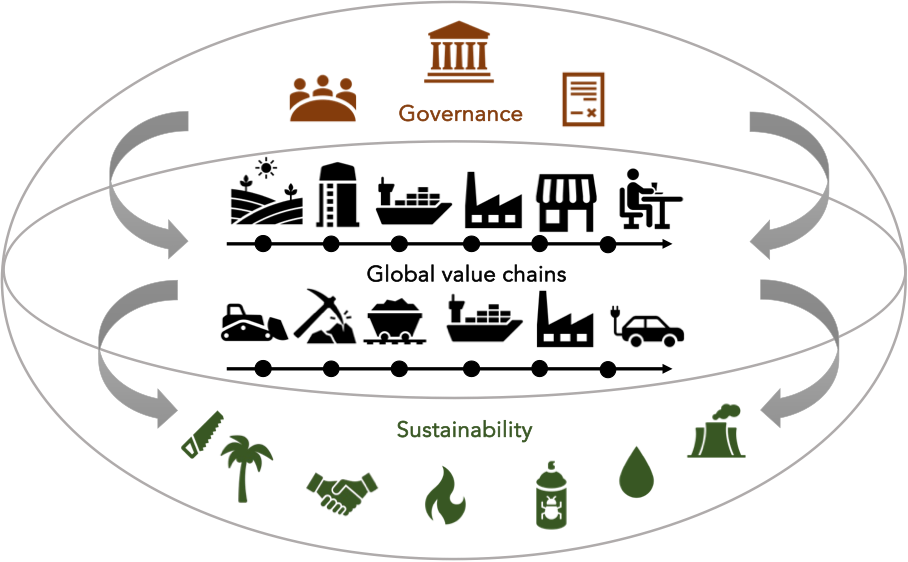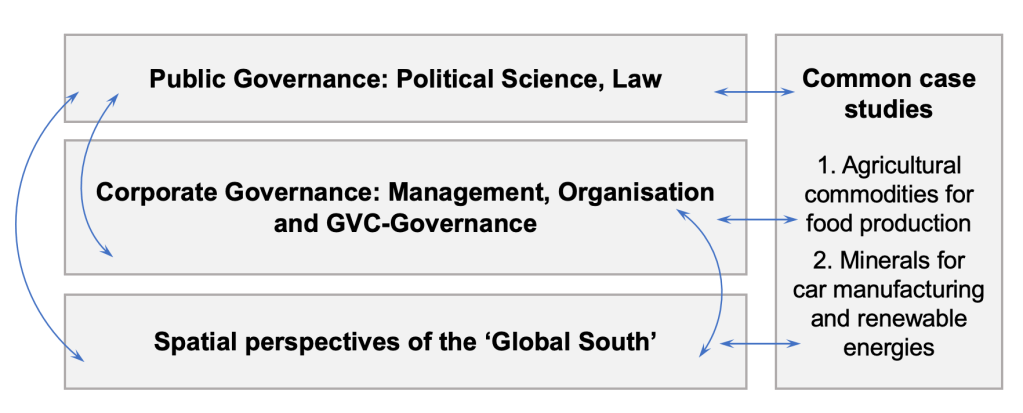By Jens Newig
Updated on 4 July 2024.
The global demand for raw materials and agricultural products has led to unsustainable working conditions and environmental impacts, especially in countries of the Global South. Efforts to address these issues have largely relied on voluntary certification and auditing by businesses, but since the mid-2010s, countries have implemented binding regulations such as France’s 2017 Loi de Vigilance, Germany’s 2023 Supply Chain Due Diligence Act, and the EU’s Corporate Sustainability Due Diligence Directive, with their effects still largely unexplored.
A new collaborative project, funded by the VolkswagenFoundation and the Lower Saxony Ministry of Science and Culture, will explore effects, potentials, and limitations of sustainability governance in global value chains (GVC). Leuphana University Lüneburg (lead) and Osnabrück University (co-lead) are collaborating with Oldenburg University and the German Institute for Global and Area Studies (GIGA).

Existing private and public approaches to the sustainability governance of GVCs face significant challenges. The geographic distance of many GVCs often leads to a lack of knowledge among Global North actors regarding the socio-economic, cultural, and ecological impacts at production sites in the Global South. Additionally, current information management systems fail to provide adequate data for making supply chains more sustainable, and the concept of “telecoupling” highlights the complexity of adapting international regulations to local conditions. Furthermore, GVCs are characterized by divergent interests and power asymmetries, making transparency and traceability essential yet difficult to achieve. Compliance with laws and standards remains challenging, particularly in regions with weak state capacities, necessitating monitoring, verification, sanctions, and capacity-building measures.
To explore these complex issues, the collaborative project takes a multi-perspective approach encompassing public governance (political and legal aspects), corporate governance (company networks and their practices), and regional perspectives (focusing on the Global South). The project will utilize empirical case studies in sectors crucial to Lower Saxony, such as agricultural raw materials for food production and minerals for automotive manufacturing and renewable energy production.

Key features of the research cluster include:
- Interdisciplinary integration of political, legal, economic, socio-technical, and geographical perspectives.
- Integration of perspectives from both the Global North and South.
- An empirical multi-sector comparison of GVCs relevant to Lower Saxony.
This comprehensive approach seeks to promote a deep understanding of how public regulations, corporate sustainability management, and technological solutions can drive the desired transformations along GVCs, ultimately contributing to sustainable global development.
In the months to come, two post-doc positions and nine PhD positions will be advertised across the collaborative project.
